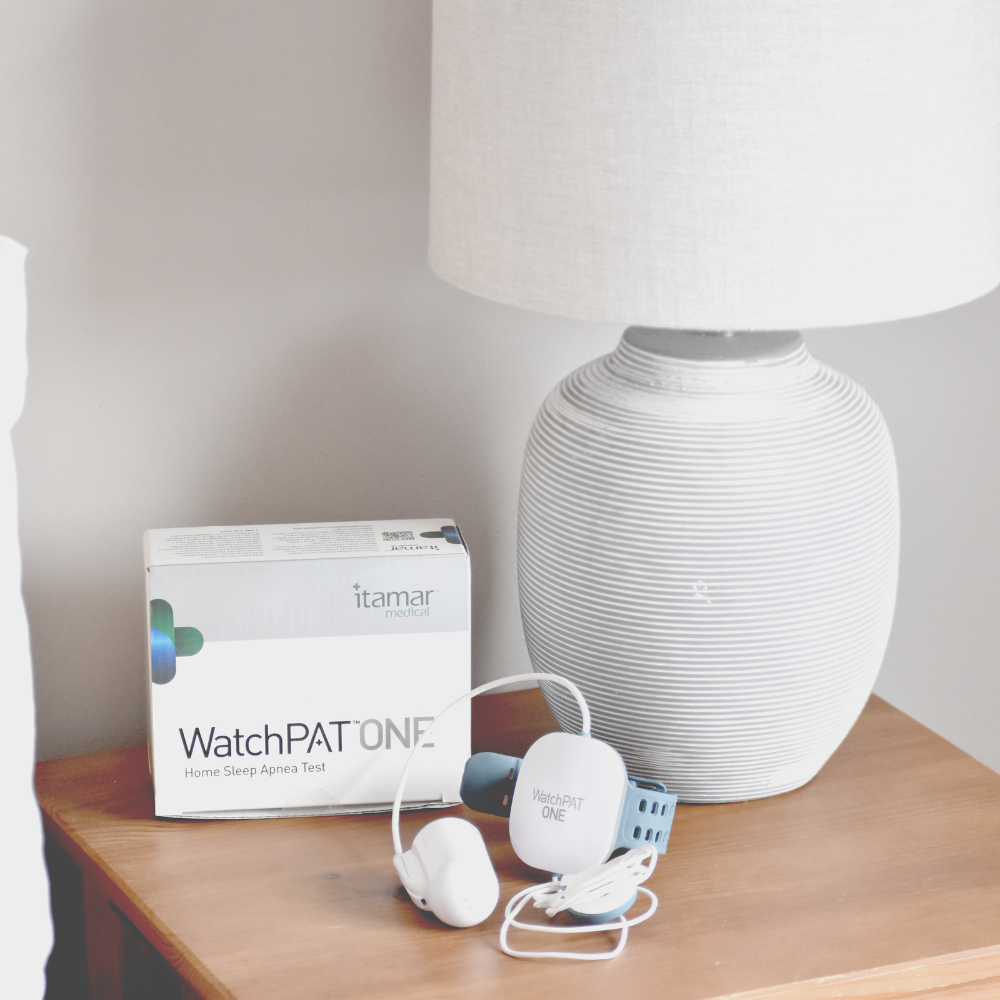Fact Checked
Intus Healthcare’s writers, customer service team, and sleep experts review and ensure this information is accurate.
Last updated on March 31st, 2025 at 10:55 am
Many scenarios can increase your likelihood of developing Obstructive Sleep Apnoea (OSA).
While you may be aware that obesity is a primary cause, not everyone knows that a fat tongue and larger neck circumference are the roots of the disorder.
So, what is OSA? And how does it impact your ability to obtain a solid night of rest, and more importantly, how might a larger tongue and neck exacerbate this condition? Let’s take a look.
Table of Contents
OSA at a glance
Sleep Apnoea is a narrowing of the airways; as these paths narrow, breathing becomes more difficult. Not only will this cause you to wake up numerous times throughout the night, but choking and snoring are common symptoms that further disrupt your sleep.
Although millions of individuals have already been diagnosed with OSA, it is firmly believed that millions (around 85%) more might not be aware that they have this condition. Thus, they may never seek the appropriate treatment options.
Now that we have taken a brief look at Sleep Apnoea, let’s take a moment to acknowledge how obesity can exacerbate the situation even further.
Sleep Apnoea and Obesity: How weight causes Sleep Apnoea
Sleep Apnoea and obesity are often related, as excess body weight is a common risk factor for developing Sleep Apnoea.
Obesity can contribute to the development of OSA in several ways. Excess weight can cause fat to accumulate in the throat, which can narrow the airway and make it more difficult to breathe during sleep. In addition, obesity can lead to reduced lung capacity, which can also make it harder to breathe during sleep.
Furthermore, let us also stress that the muscles within your tongue will relax while sleeping. They can block your airways as they relax to the point where you suddenly wake up choking or gasping for breath. These are some of the reasons why doctors are now being encouraged to examine the condition of a patient’s tongue when determining whether or not OSA may be present.
It has been known for some time that those who are obese are much more likely to develop the symptoms associated with Sleep Apnoea. Not only will this impact the size of the tongue, but excess fatty tissue can also increase the thickness of the neck.
A wider neck can pressure the windpipe and surrounding airways when lying down. It is also important to note that fat may also be located around other areas of the respiratory tract, such as the oesophagus and the pharynx. When all of these scenarios are in synergy, even mild cases of OSA can worsen within a short period.
Can Sleep Apnoea cause weight gain?
Sleep Apnoea does not directly cause weight gain but can contribute to weight gain in several ways. As a result of repeated breathing pauses, you may feel fatigued and have lower energy levels during the day, which can lead to reduced physical activity and increased food cravings. This can make it more challenging to maintain a healthy weight.
In addition, OSA can disrupt the normal balance of hormones in the body, including those that regulate hunger and satiety. For example, it can lead to an increase in the production of the hormone ghrelin, which stimulates appetite, and a decrease in the production of the hormone leptin, which signals to the brain that you are full. This hormonal imbalance can make it more difficult to control your eating and contribute to weight gain.
Some people with Sleep Apnoea may be prescribed medications such as corticosteroids, which can cause weight gain as a side effect.
While OSA does not directly cause weight gain, it can contribute to it indirectly by disrupting sleep, altering hormonal balance, and potentially through specific medications. It is important to seek treatment for Sleep Apnoea to improve your sleep quality and overall health.
Lifestyle changes to reduce the risk of Sleep Apnoea
Some of the most common risk factors for obesity include an increasingly sedentary lifestyle, a poor diet and stress. Those who are chronically obese will likewise have increased chances of developing more severe conditions such as high blood pressure, atherosclerosis, heart disease, and diabetes.
Your diet is essential, as excess calories and “empty” carbohydrates (sugary foods) will inevitably be stored as fat. Some of the fat may be deposited within the tongue and around your airways, worsening the symptoms of OSA.
However, this is only a single piece of a much larger puzzle. Some other powerful suggestions include the following:
- Adopting a regular exercise regimen.
- Eating smaller portions at meals.
- Drinking plenty of water.
- Consuming plenty of fruits and vegetables. Ablating bad habits such as smoking and excessive alcohol consumption.
The fact is that these changes will make a genuine difference over time.
Related article: Foods that help you sleep
Exercises to reduce Sleep Apnoea symptoms
Specific exercises can help alleviate your Sleep Apnoea symptoms and snoring if you have a fatty tongue. Let’s take a quick look.
Please note that each of these exercises can be performed throughout the day or even as you are lying down to sleep at night:
- Slide the tip of your tongue forward and backwards along the roof of your mouth. Repeat this 20 times.
- Press the entire surface of your tongue on the roof of the mouth.
- Press the underside of your tongue on the floor of your mouth while ensuring that the tip remains in contact with your bottom teeth. Once again, repeat 20 times.
If you are obese and have Sleep Apnoea, losing weight can effectively improve your symptoms. Even modest weight loss can help reduce Sleep Apnoea severity and improve your overall health. In addition to weight loss, other treatments for Sleep Apnoea may include using a continuous positive airway pressure (CPAP) machine, which helps to keep the airway open during sleep, and oral appliances that can help to reposition the jaw and tongue to keep the airway open.
Could you have Sleep Apnoea?
If you snore heavily, choke in sleep and struggle with daytime fatigue, you may have this medical condition. You can learn if you have Sleep Apnoea in just a few days by taking an In-Home Sleep Test.

Home Sleep Apnoea Test
The test monitors your heart rate, snoring intensity, blood oxygen levels, body positioning, and more, providing accuracy comparable to testing used in sleep clinics for in-depth sleep analysis.
The simple-to-use test takes just one night to complete, and results are returned within two working days after completion.
Our experienced NHS-qualified sleep professionals independently analyse all studies, providing follow-up advice and support.
Your body requires a good night’s sleep to stay healthy so that you can live a long life. You owe it to yourself and loved ones to learn if you have Obstructive Sleep Apnoea – so you can get the refreshing night’s sleep your body needs.
In-Home Sleep Tests are user-friendly and accurate in determining your condition in just two working days, so look at this option further. Life goes on after Sleep Apnoea, and the first step is developing a proactive stance to combat this condition with a sense of motivation.
About Our Editorial Team
Danni is a degree-educated content writer passionate about helping those with Sleep Apnoea sleep better; she works closely with our clinical and customer care teams to ensure that each article is thoroughly researched and accurate.
Her writing aims to inform, support, and advise readers about Sleep Apnoea, helping to raise awareness and promote effective treatment options.
She has written many health-focused articles, reaching hundreds of readers annually, to help people sleep better and live healthier lives.
Lateisha King is an experienced Sleep Clinician with advanced training in polysomnography and respiratory health.
With over six years of experience, including at the prestigious Guy’s and St Thomas’ NHS Foundation Trust Hospital, she has conducted and reviewed more than 500 diagnostic sleep studies.
Her expertise in sleep science ensures that all articles align with the latest data and treatment protocols, providing readers with trustworthy and practical advice to improve their sleep health and overall well-being.





